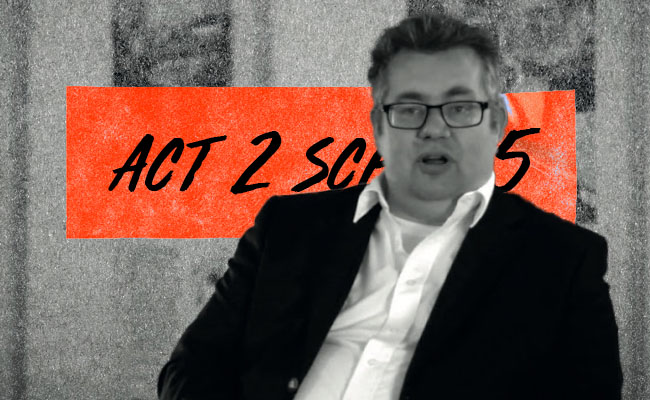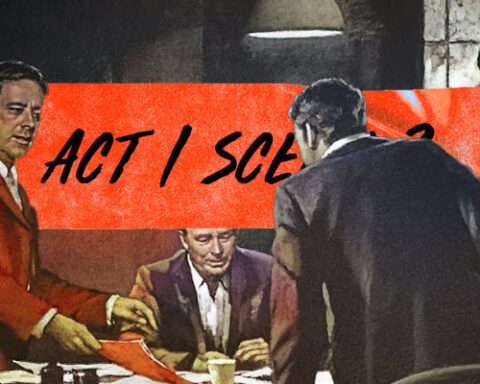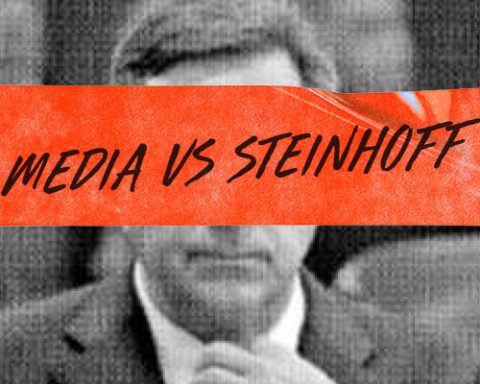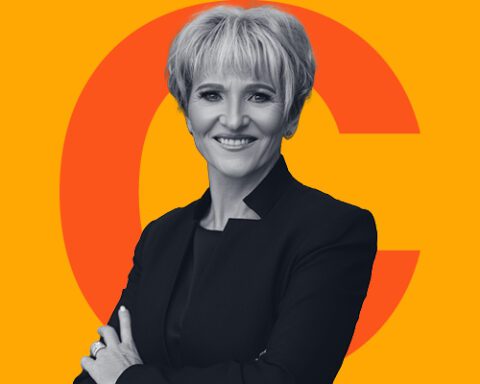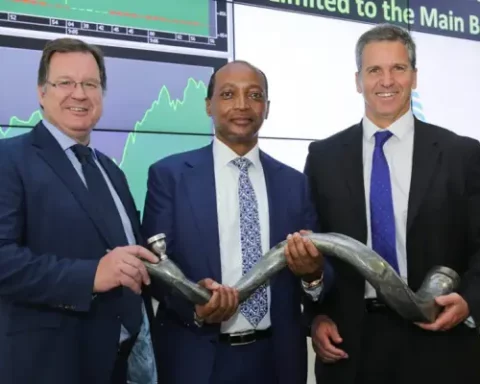In the days after he resigned on December 4 2017, and Steinhoff’s share price took its dive, Markus Jooste was evidently unwilling to believe the game was up.
Emails contained in the PwC report, revealed here for the first time, show that Jooste mailed two of his accomplices on December 6, attaching the confidential document from Deloitte that demanded a forensic investigation into the claims of fraud.
“This is the shit they come with that we will have to fight together,” he writes to Siegmar Schmidt and George Alan Evans, both of whom were instrumental in constructing the sham deals in Europe.
Schmidt is alarmed. “What is going on there? I was shocked when I got the info of your resignation,” he writes, and Jooste says he’ll phone him later to explain, saying “we must stand together like always”. Schmidt replies: “That we will do for sure.”
Remarkably, on the day after he offered Steinhoff chair Christo Wiese his resignation, Jooste emails Steinhoff Europe CEO Dirk Schreiber, who did more than anyone to cover up the deceit. At the time, no-one was wise to Schreiber’s role, as he was still in Steinhoff’s nerve centre, meeting with the auditors, Wiese and the board, who were scrambling to put the pieces together.
“What is happening there?” Jooste asks Schreiber, who replies that he’d been in an audit committee meeting with Steve Booysen, the head of Steinhoff’s audit committee. Schreiber tells Jooste that the “deal with the Americans”, Serta Simmons, “needs to be reversed” – a critical point for Jooste, who had tried to include a fictitious €740m from that deal in the 2017 accounts.
Jooste is up late, and is clearly still getting intelligence from inside Steinhoff, because he emails Schreiber back at 1am, with a one-liner: “They say you said all the profits of TG is a sham …”
In reality, the revenue that Steinhoff booked from the TG Group was a sham, since that company – secretly controlled by Jooste and his friends – had not paid a cent to Steinhoff over the years, even though the retailer had supposedly booked more than €1bn in profit from it.
Schreiber replies at 6am, asking who “they” are, but telling Jooste that he was forced to confirm that the amount booked by the TG Group “is not paid, as per today”.
Jooste replies at 7.40am, saying: “You must stand strong today, it is not going to be easy.”
He adds: “For you personally, I recommend you don’t attend the board meeting, don’t be at the office and work from home.” As for himself, Jooste says he is “going to prepare my family for what is coming [for] them today”. Schreiber thanks Jooste for the advice, saying he will opt out of the board meeting.
Overconfident
This is further evidence of how phlegmatic Jooste was under pressure. Even as the extent of the fraud was being unravelled, he was methodical and calculating – just as he was a week earlier, when Deloitte accused him of having defrauded Steinhoff for years.
Jooste thought he had been clever enough to get away with it. He was usually careful to speak on the phone, rather than commit too much to writing.
The forensic auditors struggled to reconstruct Jooste’s Steinhoff communications because, as PwC writes in the report, there was a “standing instruction to delete the email archives” of Jooste’s main email address, mjj@steinhoff.co.za.
Remarkably, Jooste’s last request to wipe his email was sent to Steinhoff’s IT geeks at 10.03am on December 5, the day after he told Wiese he would quit.
“Hoekom maak jy my [e-mail account, mjj@steinhoff.co.za] nie meer skoon nie?” Jooste asked Jacques van Wyk in a text message that day. (“Why are you no longer cleaning out my email account?”)
Van Wyk promises to log in and do that immediately, quickly apologising. Shortly after, Van Wyk sends a message back to Jooste saying “alles skoon”. (“Everything clean.”)
What Jooste evidently hadn’t bargained on was any of his co-conspirators ratting on him.
Schreiber, who had sent Jooste pleading emails begging him to stop padding the accounts lest they be caught, provided the evidence trail to PwC. For his trouble, Schreiber now sits in a jail in Germany, the first prison sentence meted out for this fraud.
This story was produced in collaboration with amaBhungane and the Financial Mail.
Top image: Dirk Schreiber.
ALSO READ:
Inside the PwC report: What really brought Steinhoff to its knees
‘Can you send me a quick €500,000’
Sign up to Currency’s weekly newsletters to receive your own bulletin of weekday news and weekend treats. Register here.
